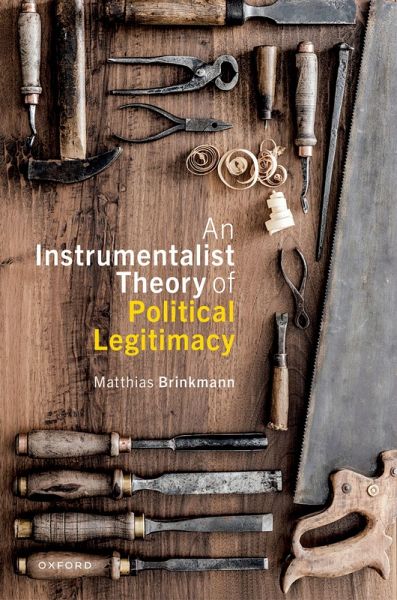
An Instrumentalist Theory of Political Legitimacy (eBook, PDF)
Versandkostenfrei!
Sofort per Download lieferbar
60,95 €
inkl. MwSt.
Weitere Ausgaben:

PAYBACK Punkte
30 °P sammeln!
We are all subjected to the power of the state and other entities such as the EU. But what justifies the far-reaching power of these institutions? Standard theories suggest that consent, democracy, or justification make exercising power legitimate. This book, however, argues that these approaches do not survive philosophical scrutiny. Instead, it develops a radical theory of political legitimacy according to which power is justified because of the outcomes it brings about. It does not primarily matter, then, how power is exercised; instead, we should focus on what it achieves. This is the firs...
We are all subjected to the power of the state and other entities such as the EU. But what justifies the far-reaching power of these institutions? Standard theories suggest that consent, democracy, or justification make exercising power legitimate. This book, however, argues that these approaches do not survive philosophical scrutiny. Instead, it develops a radical theory of political legitimacy according to which power is justified because of the outcomes it brings about. It does not primarily matter, then, how power is exercised; instead, we should focus on what it achieves. This is the first book-length treatment of instrumentalism. It outlines the structure and core moral commitments of the theory and considers in detail how it is best formulated. In particular, the book sketches an abstract theory of justice and argues that our primary aim in distributing political power should be to promote justice. Instrumentalism is also contrasted with the three leading theories of legitimacy, based on consent, democracy, and public justification. Not only are these competing theories unpersuasive, but it is also shown that instrumentalism can replicate some of their appeal in its own way. The book also untangles some conceptual confusions concerning political legitimacy. One mainstream view is that legitimacy requires authority, the ability to give binding commands to people. This book argues against the necessity of authority and develops an authority-less model of legitimacy, defining legitimacy as the separate and distinctly moral problem of justifying political power. This book will appeal to anyone interested in the moral foundations of justified political power, and especially to researchers in philosophy, political theory, and law.
Dieser Download kann aus rechtlichen Gründen nur mit Rechnungsadresse in A, B, BG, CY, CZ, D, DK, EW, E, FIN, F, GR, HR, H, IRL, I, LT, L, LR, M, NL, PL, P, R, S, SLO, SK ausgeliefert werden.













